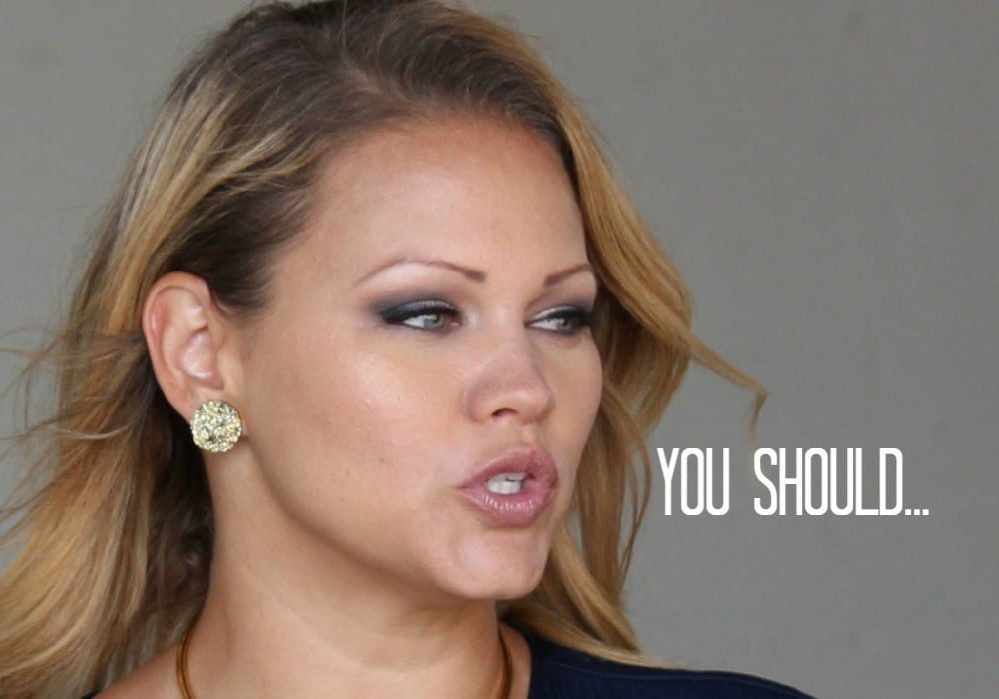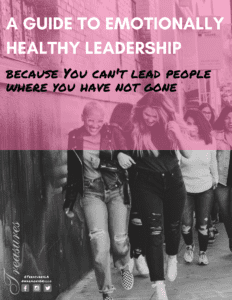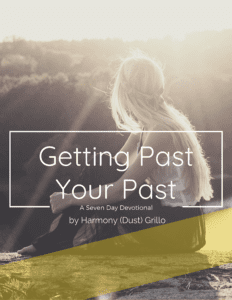Posted in CODEPENDENCY, FEATURED, Healthy Leadership
The Problem With “Shoulding” All Over People

I am a recovering unsolicited advice giver. For most of my life, if anyone approached me with a problem, I had an answer. On demand. Passionately and emphatically, I would explain the solution, usually with a book recommendation to boot. If it were a friend, they would receive said book as their birthday gift. If my advice was unwanted, or worse, untaken, well, that was their loss!
In my unsolicited-advice-giving-superhero-cape-wearing-hay-day, one of my favorite words was “should.” As in, “You should…
break up with him
go to this school
read this book
call this person
go to this recovery group
apply for this job.”
I was never at a loss for answers. Thankfully, a program called Celebrate Recovery as well as a handful of incredible books (that I will only tell you about if you ask me), helped me change my ways. I no longer feel compelled to fix or improve other people. I’ve retired my superhero cape and instead choose to focus on my personal growth and healing. It turns out this keeps me pretty occupied!
Today the word “should” hits my ears as harshly as a curse word. Once out of my mouth on the reg, it now makes me cringe! The term is damaging and loaded, especially when it comes to relationships. Here are the top three problems with “should”:
-
It’s Disempowering
Telling someone they should do something implies, “I know better than you.” It puts us in a one-up position and sends a message that we are the authority on the issue at hand. While we may have valuable input from time to time, we are not the experts on other people’s lives. They are the ones who have access to their thoughts, feelings, motivations, history, desires, hopes, and dreams- not us. We don’t know best so let’s stop acting as if we do.
-
It Fosters Codependency
Some people want another person to tell them exactly what to do. When I found out my ex-husband had been having affairs, I practically begged my sponsor to lay out my steps. I felt so powerless and defeated and just wanted someone to take charge. Thankfully, she did not bite. Instead, she helped me explore options, pray, take inventory of my wants and needs, and ultimately, make my own decisions. If she had told me what to do, it could have triggered a co-dependent relationship. People who struggle with co-dependency are in a constant game of, “I don’t want to take responsibility for my wants, needs, and feelings, so I need someone else to take care of me.” (The flip side can be “I don’t want to take responsibility for my wants, needs, and actions, so I am going to try to control yours.”)
-
It’s Shaming
The word should carries a message of shame and judgment. It communicates to the other person, “your behavior is wrong or bad, and I can tell you how to change it because I am ‘better’ than you in this area.” It’s especially harmful when commenting on past behavior. For example, “Why did you do ABC? You should have done XYZ.” None of us want to hear that, nor can we change the past. The best we can do is learn from it. Comments about what’s already history only make people feel worse about their choices.
The good news is, eliminating should from our vocabulary is hugely beneficial. Research has shown people are more likely to invest in and commit to a solution they’ve come up with themselves. That means instead of doling out absolute advice, merely coming alongside someone in support is what’s most helpful. Especially when it comes to mentoring relationships, one of the best things we can do is let people arrive at their solutions. I’ve replaced all my old convincing phrases with an arsenal of encouraging questions to help others explore future-focused solutions. These are my new go-to’s when people ask for my advice:
What are your options?
What is your gut telling you to do?
What would happen if you followed through with XYZ?
What can you do the next time you find yourself in this situation?
I know I respond a lot better to questions than people forcing their opinion on me. Life can get messy if we are “shoulding” on people left and right! Let’s get rid of the dirty word and keep our sides of the street clean.

In this interactive guide, you’ll learn how to support your loved one when they are engaged in harmful patterns, behaviors, and relationships. No matter how deep in despair your loved one may be, there is hope. And you have an opportunity to play a vital role in their journey to freedom. This interactive guide will show you how!
Paperback, 68 pages
FREE DOWNLOADS

At thirteen, after being abandoned by my mother one summer and left to take care of my younger brother, I became susceptible to a relationship that turned out to be toxic, abusive, and ultimately exploitative. I eventually found myself working in a strip club at the age of nineteen, and my boyfriend became my pimp, controlling my every move and taking all of my money.
Scars and Stilettos is my stark, honest, and ultimately hopeful story of how God found me in that dark, noisy place, led me back out, and prompted me to help others who are trapped as I once was. I hope to expose the realities of the commercial sex industry and inspire hope that freedom and healing are possible for those involved.
2 Comments
Leave a Comment
more from the blog
Kanye West & Bianca Censori’s Red Carpet Moment: Empowerment or Expl0itation?
Kanye West showed up to the Grammys’ red carpet with his wife Bianca Censori wearing what…
Read MoreReclaiming Your Power From a Narcissist: How to Break the Cycle of Narcissistic Abuse
If you have found yourself caught in a cycle of narcissistic abuse, you probably feel worn…
Read MoreUnmasking Narcissism: The Relationship Pattern That Will Leave You Heartbroken
If you’ve ever faced the crushing blow of being discarded by a narcissist and found yourself…
Read More






Thank you for the reminder. I regret to admit I did the same for way too long. Hope you are doing well. God bless.
I found that once I saw it in myself, it was hard not to see!